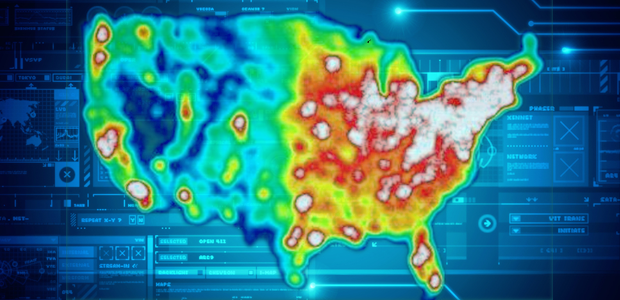Skills Gap
Skills Gap Revealed in Cybersecurity and IT Industry
Organizations worldwide are stepping up efforts to hire Cybersecurity professionals due the increase in cyber-attacks following the COVID-19 pandemic. The severe shortage of trained Cybersecurity experts resulted in a fierce competition among their ranks.
In fact, industries across the board are experiencing an unprecedented increase in Cybersecurity skills gap. Currently, nearly 60 percent of organizations have vacant Cybersecurity positions, according to a recent workforce development survey by Frost & Sullivan. The survey forecasted a shortfall of 1.5 million cybersecurity jobs globally by the end of 2020. Adding to this workforce challenge is the fact that the acute shortage has consequently caused spikes in salaries, making experienced professionals unaffordable for many companies.
According to CyberSeek, Cybersecurity talent gaps exist across the country. Closing these voids require detailed knowledge of the Cybersecurity workforce in many regions.


This interactive heat map provides a granular snapshot of demand and supply data for Cybersecurity jobs at the state and metro area levels, and can be used to grasp the challenges and opportunities facing your local Cybersecurity workforce.
Many factors are to blame for the shortage, but topping the list is the increasing growth in cyber threats and threat actors. As organizations struggle to find qualified cybersecurity professionals, the industry is working to close the cyber security skills gap.
Sonya Krakoff, a senior content marketing specialist for Champlain College discussed the top skills needed in Cybersecurity.
There is a huge opportunity in the Cybersecurity and IT services industry–jobs are in-demand with huge pay packages and opportunities in many sectors. And while it urgently requires re-equipping and re-tooling to fill the gaps, a career in the Cybersecurity and IT industry is definitely worth the time, money, and effort.
What do you think? Are you ready to expand to a new career?
Join the fight to defend a more secure world. Find out how to start or expand your Cybersecurity career.
Problem-Solving Skills
Cybersecurity professionals need to find creative ways to address complex information security challenges across a variety of existing and emerging technologies and digital environments.
Technical Aptitude
Cybersecurity is a technology-focused field with a wide array of tasks such as troubleshooting, maintaining and updating information security systems, implementing continuous network monitoring, and providing real-time security solutions. Being technologically savvy is essential to perform the daily activities of a Cybersecurity professional.
Knowledge of Security Across Various Platforms
Cybersecurity is not solely confined to basic computers. Professionals must be comfortable working on a variety of operating systems, computer systems, mobile devices, cloud networks, and wireless networks and must keep up to date on advances in the field for all of them.
Fundamental Computer Forensics Skills
While computer forensics and Cybersecurity are two separate fields, they are closely related, and having a foundation in computer forensics can help individuals interested in a Cybersecurity career. To protect an organization’s digital assets and prevent security breaches, cyber experts need a solid understanding of what happens if efforts fail and how compromised data is recovered. Therefore, most Cybersecurity degree programs will have a computer forensics component.
An Understanding of Hacking
To protect an organization’s network and infrastructure, cyber experts must know how they can be exploited in the first place. Hence, Cybersecurity professionals must learn how to “ethically hack.” They need to have the same skills as a hacker to fully understand how a system could be breached, and in turn, create effective solutions for thwarting these attacks.
Attention to Detail
Cybersecurity professionals must be highly vigilant and detail-oriented to effectively detect vulnerabilities and risks. These experts are responsible for continuous network monitoring and must be able to quickly identify concerns and come up with real-time security solutions to address them.
Communication Skills
As a Cybersecurity specialist, working closely with individuals in other roles and departments is essential to effectively explain findings, concerns, and solutions. It is important to communicate cybersecurity strategies and policies in simple terms as well as to convey technical information to individuals in different levels of expertise.
A Desire to Learn
Like in any technical field, Cybersecurity is always changing quickly. Anyone who works in this field must be committed to staying current with best practices and emerging industry trends and interested in constant learning and self-educating.